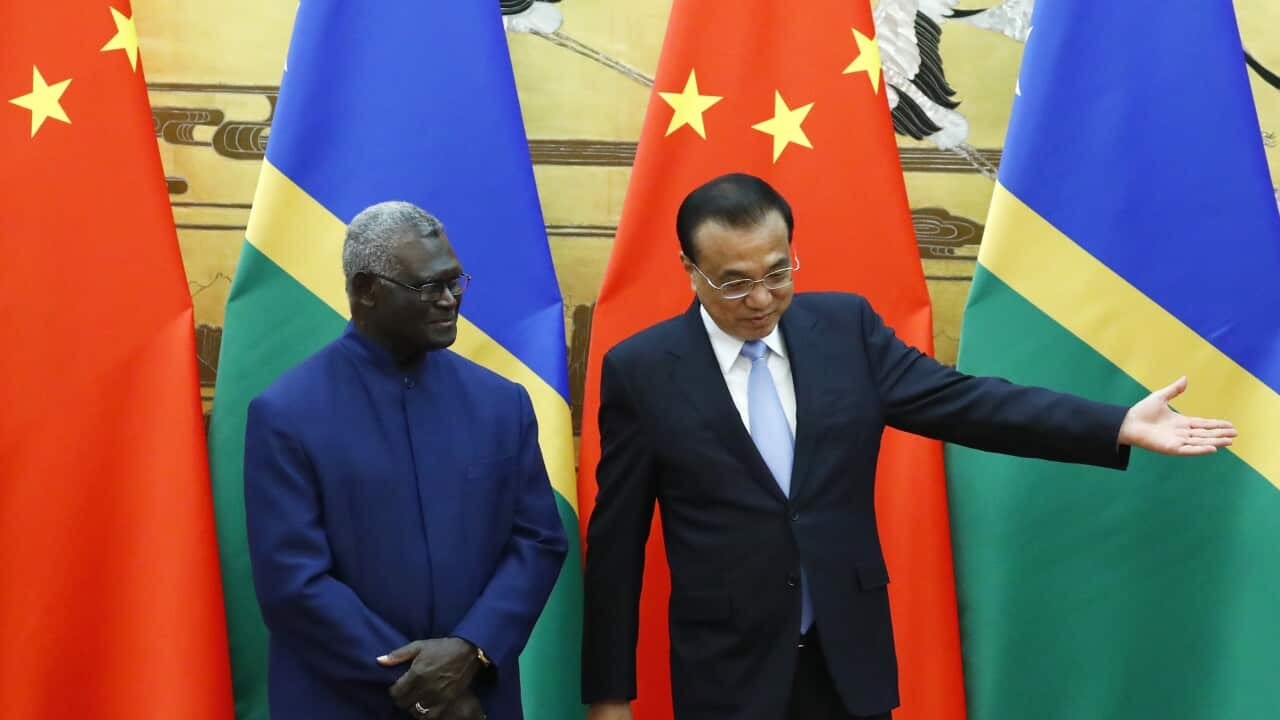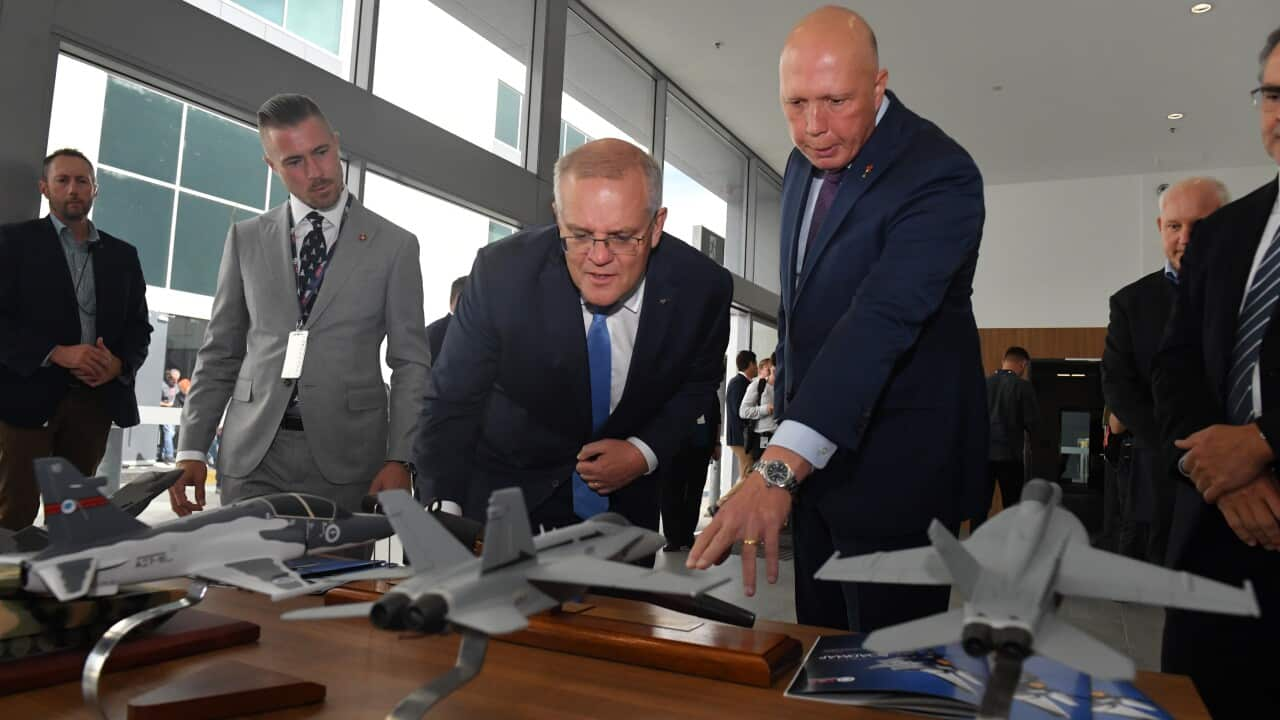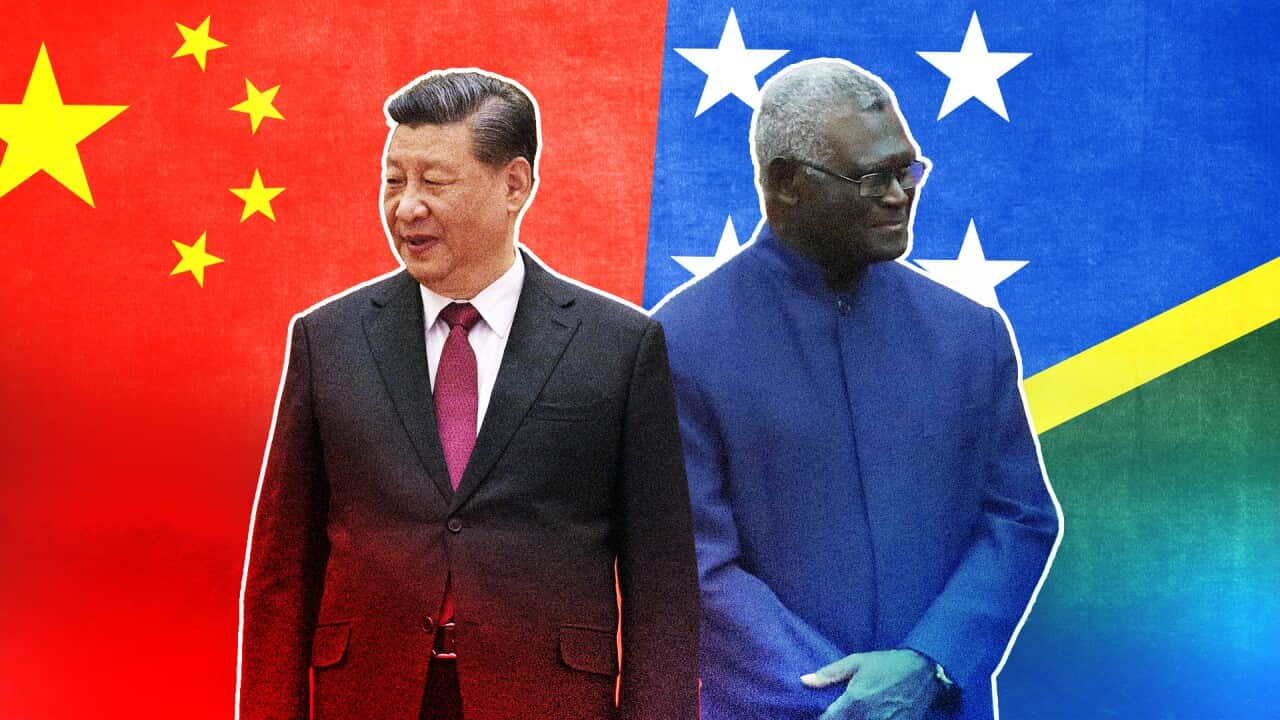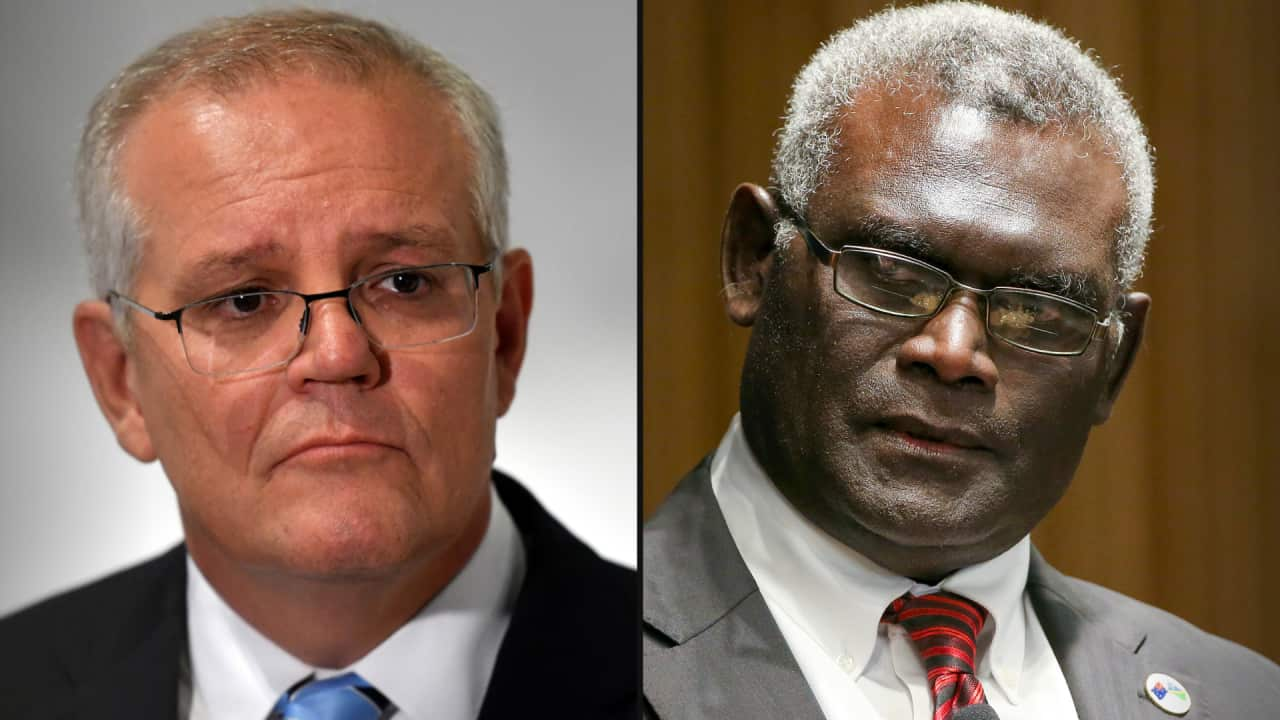Officials from Australia's Department of Foreign Affairs and Trade (DFAT) have used bilateral talks with China to raise "serious concerns" about the nation's new security pact with Solomon Islands.
The virtual talks between DFAT officials and their Chinese Ministry of Foreign Affairs counterparts were held on Friday.
In a statement, DFAT said the Australian diplomats expressed their concerns about the "lack of transparency" of the agreement and "its implications for continuing regional security and stability".
"Australian officials emphasised that Australia is a Pacific nation with deep, longstanding connections with our Pacific family across all arms of government and right across our society," the department said.
It said officials "reinforced Australia's abiding commitment to the security architecture of our region", and stressed that "the Pacific family remains best placed to meet the security needs of Pacific island countries comprehensively".
DFAT added that Australia and China also "exchanged views" on other issues facing the region including "climate change adaptation and resilience, COVID-19 response and recovery, fisheries and maritime issues, and infrastructure development".
The meeting came on the same day that Foreign Affairs Minister Marise Payne met with her Solomons Islands counterpart Jeremiah Manele in Brisbane.
It was the first time the two had met since Solomon Islands signed a security pact with China in April.
The full agreement is yet to be released, but a leaked draft contains provisions for Chinese police to help maintain social order and for Chinese naval vessels to replenish in the Solomon Islands, which is about 1,700km north-east of Cairns.
Senator Payne said she used her meeting with Mr Manele to express concern about the lack of transparency around the pact.
"Australia has been consistent and clear in stating our respect for Solomon Islands' sovereign decision-making," she said.
"We agreed that Australia remains the Solomon Islands' security partner of choice."
Senator Payne said she had also been reassured the Pacific nation would not house a foreign military base.
Tensions have increased between the nations since the agreement was signed, with Solomons Islands Prime Minister Manasseh Sogavare last week launching an attack on Australia in his country's parliament.
He said he was "insulted" that Solomons Islands was being treated like kindergarten students "walking around with Colt 45s in our hands" who needed to be supervised.
Mr Sogavare also accused other countries of threatening his nation "with invasion" over the security pact.
Prime Minister Scott Morrison said it was not true to suggest comments describing the prospect of Beijing establishing a military base in Solomons Islands as a "red line" amounted to this.
"We are concerned for the Solomon Islands, for the broader security in the southwest Pacific," he said.
"Should I have the opportunity, I am looking forward to sit down with all of the Pacific leaders so we can talk to each other as family about the risk this presents."
Malcolm Davis, a senior analyst at the Australian Strategic Policy Institute (partly funded by the Department of Defence), .
"If China establishes a military base in the Solomon Islands as part of this deal — which seems highly likely — then for the first time since 1942, Australia’s eastern seaboard would be open to direct military attack by a hostile power in the event of a war between Australia and China," said Dr Davis, who formerly worked in strategy at the Department of Defence.
Dr Davis said the Solomon Islands deal could be the start of a new age of Chinese military dominance in the South Pacific.
"We have to be extra vigilant and extra attentive to the South Pacific as a region, where we’re going to see a forward Chinese presence in the near future," he said.
"Once established in the Solomon Islands, China could then seek to expand its influence in Papua New Guinea."












